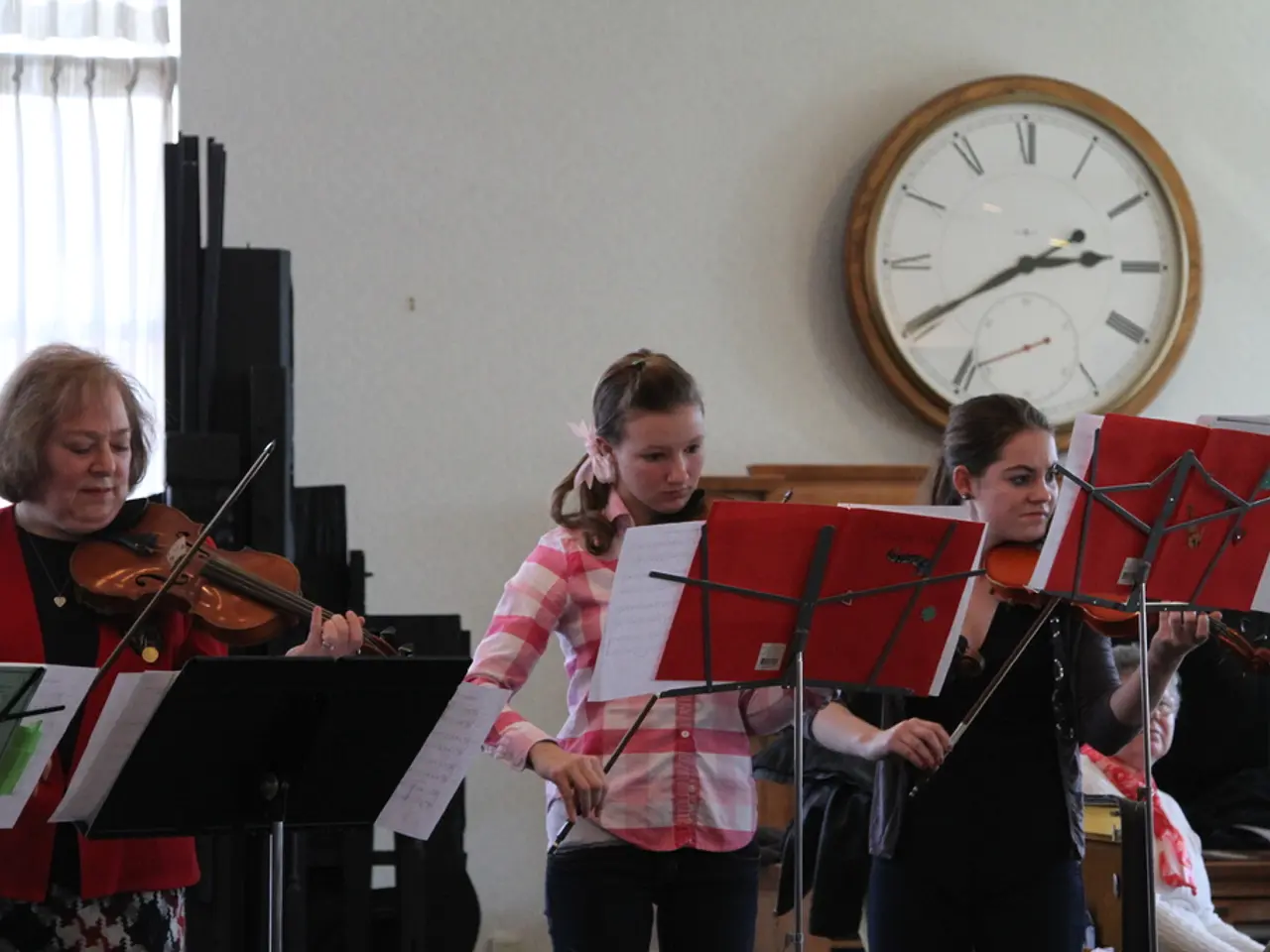Following Belgium's denial:
In the heart of Berlin, the Berliner Festspiele played host to a powerful and poignant concert on Monday evening. The event, which served as a symbol of unity and reconciliation, was marred by controversy but ultimately proved to be a statement against antisemitism and discrimination.
Lahav Shani, the music director of the Israel Philharmonic Orchestra, and the Munich Philharmonic were greeted with applause and standing ovations as they took to the stage. The performance was a last-minute invitation from the Music Festival Berlin, the Foundation of the Berlin Philharmonic, and the Konzerthaus Berlin, following the cancellation of an earlier event in Ghent, Flanders.
The cancellation was due to perceived lack of distance from the Israeli government on the part of Lahav Shani. This decision sparked a wave of criticism in Germany, with President Frank-Walter Steinmeier calling it unjustifiable. Steinmeier met with Shani and stated that conditioning a Jewish artist's performance on their distance from Israeli government policy is antisemitic.
Matthias Pees, the Intendant of the Berlin Festspiele, described the concert as a symbol of the unifying and reconciliatory power of art and music. Pees emphasized the event as a statement against antisemitism and discrimination, while highlighting the core values of democratic society in Europe.
Culture Minister Wolfram Weimer also weighed in, stating that Berlin is setting a strong counter-sign against antisemitism. Weimer referred to the date of the concert, exactly 90 years ago, the Nazis had enacted the Nuremberg Laws. The area in front of the concert hall on Gendarmenmarkt was cordoned off and police were present to ensure the safety of all attendees.
The performance by Shani and the Munich Philharmonic was celebrated not only for its musical excellence but also for its symbolic significance. The evening was a testament to the power of art and music to bridge divides and promote understanding, even in the face of adversity.
Shani, who is designated as the chief conductor of the Munich Philharmonic, to officially take up the post in autumn 2026, expressed his gratitude for the support and solidarity shown by the Berlin audience. Former Chancellor Olaf Scholz and conductor Daniel Barenboim were among the guests at the substitute concert.
The current case raises questions about the resurgent and increasingly aggressive antisemitism in Europe. As the continent continues to grapple with this issue, events like the concert in Berlin serve as a reminder of the importance of standing together against hate and discrimination.
Read also:
- United States tariffs pose a threat to India, necessitating the recruitment of adept negotiators or strategists, similar to those who had influenced Trump's decisions.
- Weekly happenings in the German Federal Parliament (Bundestag)
- Southwest region's most popular posts, accompanied by an inquiry:
- Discussion between Putin and Trump in Alaska could potentially overshadow Ukraine's concerns








